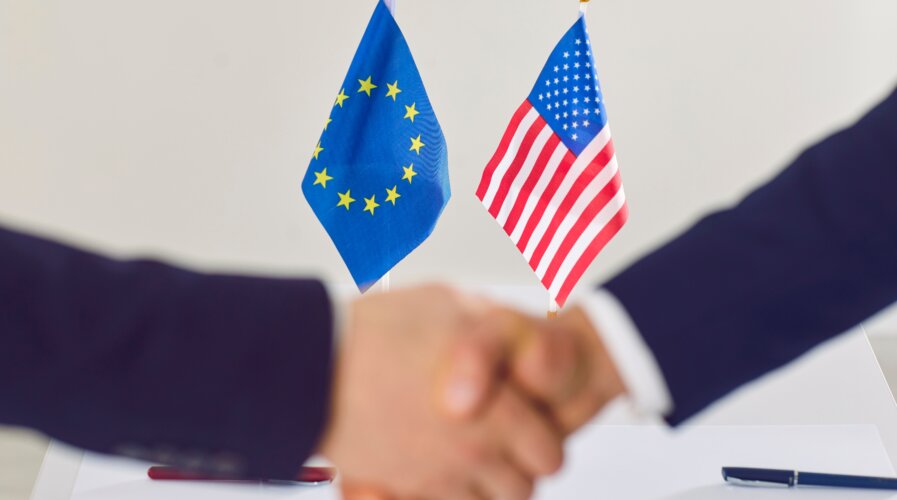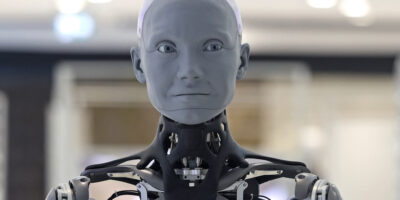
The United States and the European Union have signed a world-first agreement on the responsible use of AI. (Source – Shutterstock)
As the US and the EU sign agreement for responsible use of AI, will APAC be part of it?
The responsible use of AI has always been important for organizations deciding how much technology should they invest in. Over the years, enterprises, be they large or small, have been investing in AI technology as it promises better business outcomes.
However, some organizations were still struggling with having responsible AI. For example, when security agencies began using AI-enabled facial recognition solutions to screen the public, the technology was condemned for flagging individuals based on their racial profile.
Another example would be where AI would help in decision making but the decision was made with insufficient data. This includes the implementation of AI in workplaces, whereby some employees had their KPIs affected as the AI system used could not have access to sufficient data.
According to IDC, worldwide spending on AI-centric systems will pass US$300 billion by 2026. In the Asia Pacific region, spending on AI systems could reach US$46.6 billion by 2026 as well. This includes spending on AI hardware, software and services.
Globally, there have been calls to moderate use of AI. But with technology improving and demand for better products and services increasing, more businesses are upping their AI investments.
As such, the United States and the European Union have signed a world-first agreement on the responsible use of AI. The agreement, which focuses on the collaboration of responsible advancements in AI, is the first sweeping AI agreement between the US and Europe. The agreement is expected to speed up and enhance the responsible use of AI to improve agriculture, healthcare, emergency response, climate forecasting and the electric grid.
“This collaborative effort will drive responsible advancements in AI to address major global challenges with a joint development model and integrated research to deliver benefits to our societies through five key areas of focus: Extreme Weather and Climate Forecasting, Emergency Response Management, Health and Medicine Improvements, Electric Grid Optimization, and Agriculture Optimization.
Together, we are confident the results of our research will extend beyond our partnership to benefit additional international partners and the global science community. Today’s announcement also builds on the vision set forth in the Declaration for the Future of the Internet (DFI) for an open, free, reliable, and secure Internet and digital technologies around the world,” the agreement stated.
A Reuters report stated that the initiative will give governments greater access to more detailed and data-rich AI models, leading to more efficient emergency responses and electric grid management, and other benefits. The partnership is currently between just the White House and the European Commission, the executive arm of the 27-member European Union. A senior administration official said other countries will be invited to join in the coming months.
While it’s uncertain whether Asia Pacific will be invited to join the agreement, the use of AI in the region is at a similar pace to the US and Europe. Currently, China, Japan, Singapore and India are investing and researching heavily on AI technology, focusing on the key areas announced at the agreement as well.
In fact, when it comes to responsible AI in healthcare, agriculture and electric grid optimization, the Asia Pacific region is leading adoption of the technology in some countries. For example, last year, China’s state-owned power grid company launched the nation’s most powerful AI for electricity distribution. The AI used can also cut down blackout time to just three seconds.
The AI for Agriculture Innovation initiative is transforming the agriculture sector in India by promoting the use of AI in farming. Currently, over 7000 farmers are using AI technology to monitor the health of their crops, perform quality control and test soil, according to a report by the World Economic Forum.
READ MORE
- Ethical AI: The renewed importance of safeguarding data and customer privacy in Generative AI applications
- How Japan balances AI-driven opportunities with cybersecurity needs
- Deploying SASE: Benchmarking your approach
- Insurance everywhere all at once: the digital transformation of the APAC insurance industry
- Google parent Alphabet eyes HubSpot: A potential acquisition shaping the future of CRM


